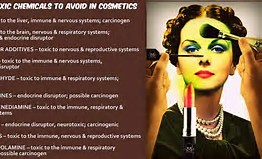Can Breast Implants Make You Sick?










Can Breast Implants Make You Sick?
In recent years, some people have suspected that their breast implants have made them very ill with diseases such as:
Overview
Getting breast implants can change a person’s life
- rheumatoid arthritis - scleroderma - Sjögren’s syndrome
Older studies showed no clear scientific evidence connecting these conditions to breast implants — silicone or saline-filled. However, newer studies from different sources have found an association between silicone breast implants and certain autoimmune diseases.
These studies suggest that silicone breast implants potentially raise your risk of developing an autoimmune disease such as rheumatoid arthritis, Sjögren’s syndrome, scleroderma, and sarcoidosis.
On the other hand, another source notes that the FDA is not able to say there’s a direct relationship between silicone implants and autoimmune diseases.
The same source notes that other experts don’t think the evidence is strong enough at this time to conclusively show an association between these breast implants and autoimmune disease.
The World Health Organization and the U.S. Food and Drug Administration have identified another possible cause for concernTrusted Source. This relates breast implants to a rare cancer called breast implant-associated anaplastic large cell lymphoma (BIA-ALCL).
Additionally, breast implants are known to cause other potential risks such as:
- scarring =- breast pain - infection
- sensory changes - implant leakage or rupture
-
-
What causes BIA-ALCL?
Scientists say the exact causes of BIA-ALCL aren’t well understood. However, it does appear that textured implants are associated with more cases of BIA-ALCL than smooth implants.
Scientists say this could be due to the fact that textured implants have a greater surface area on which a bacterial infection can form. Infections could trigger a type of immune response that ultimately, in very rare cases, results in BIA-ALCL.
Regardless of implant type, smooth or textured, it’s essential to prevent infection. Infection is a much more common illness related to breast implants. Any surgery comes with infection risks, including breast augmentation. Infections can occur when a surgery site isn’t kept clean or if bacteria enters your breast during surgery.
Besides infection, other complications associated with breast implants may occur. These include:
- bruising - bleeding - blood clots - skin necrosis - slowed wound healing - scar tissue buildup (capsular contracture)
- implant deflation and rupture - change in breast shape, volume, or sensation - thinning of your breast tissue and skin
- calcium deposits - breast discomfort - nipple discharge - dropping or bottoming out of the implant - asymmetry - need for further surgery
What are the symptoms of breast implant illness?
BIA-ALCL is often contained inside the tissue surrounding the implant. However, it can spread to other parts of your body’s lymphatic system, including the lymph nodes. The main symptoms include:
- continuous swelling or pain around your breast implant, which may occur long after a surgical incision has healed or many years after implants are inserted
- fluid collection around your breast implant
- capsular contracture, which can cause a lump under your skin or thick scar tissue around the implant resulting in a misshapen appearance
Symptoms of other breast implant complications vary. As noted above, infection is one complication associated with BIA-ALCL. It’s important to treat any breast implant complications that arise. If you experience any of the following symptoms, call your doctor right away:
- redness - swelling - pain = discharge - change in breast shape or colour - fever
Regarding autoimmune symptoms to look for, one study Trusted Source notes that silicone breast implants can cause symptoms of autoimmune diseases in some patients.
These symptoms include:
- fatigue - cognitive impairment - arthralgias, myalgias - pyrexia - dry eyes - dry mouth
Silicone also has the potential to leak from the implant throughout the body, possibly leading to a chronic inflammatory condition.
If you experience any of the connective tissue inflammatory symptoms above, let your doctor know.
How is breast implant illness diagnosed?
BIA-ALCL is classified as a T-cell lymphoma. It may develop following the surgical insertion of breast implants.
T-cell lymphomas are cancers that form in your T cells, a type of immune system white blood cell. These cancers tend to be fast growing per the American Cancer Society. The outlook for a person diagnosed with BIA-ALCL depends on the stage of their cancer at diagnosis and how aggressive it is.
Half of all reported cases of BIA-ALCL are reported within 7 to 8 years Trusted Source of the insertion of breast implants. Because the symptoms of BIA-ALCL are relatively nonspecific, experts say these diagnoses may be complicated and delayed.
But as scientific knowledge about it has grown in recent years, experts have begun to establish diagnosis standards.
When a doctor suspects BIA-ALCL, they’ll run a variety of tests to rule out any other causes of your symptoms. These tests may include:
- An ultrasound-guided aspiration of fluid that’s collected around your breast implant. A cancerous T cell presence in this fluid can tip off your doctor to BIA-ALCL.
- Thick scarring that’s apparent around your implant.
- If an abnormal breast mass is found, your doctor may test the tissue for lymphoma using a biopsy.
For autoimmune disease, various blood tests can be performed. These are done alongside a thorough history and physical examination. Doctors look for the clinical symptoms and signs occurring for each individual. Depending on the type and location of inflammatory symptoms, imaging testing may be of use as well.
How are breast implant illnesses treated?
If you’re diagnosed with BIA-ALCL, your doctor will recommend a PET-CT scan. This imaging test checks for signs of lymphoma in other parts of your body. This cancer, while rare, may be aggressive and can spread.
For most people with BIA-ALCL that’s confined to the tissues surrounding one or both breasts, surgical removal of one or both implants is necessary. With an earlier stage 1 diagnosis, implant removal is typically enough to stop the progression of the disease.
However, for cancer at stage 2 or higher that’s spread, more aggressive treatment is necessary. In addition to implant removal, chemotherapy may be able to slow or stop disease progression.
Other complications associated with breast implants are typically treated on a symptom-by-symptom basis. Antibiotics are often used to treat infection, though in severe cases, surgery might be necessary to remove the implants that have caused infection.
Regarding potential autoimmune response, one study noted that for 75 percent Trusted Source of patients affected, removal of their silicone breast implants provided significant relief of systemic symptoms. Symptoms included arthralgia, myalgia, fatigue, and neurological symptoms, during an observation period of 14 months following removal of the implants.
However, making a diagnosis and forming a treatment plan — whether medical or surgical — needs to be a well-thought-out process between a patient and their doctor.
How can you prevent a breast implant illness?
The survival rate for people with BIA-ALCL is relatively high at 89 percent at 5 years, in general for any stage of this cancer. The survival rate is even higher for people with stage 1 cancer who have a complete removal of their affected implant or implants and cancerous breast tissues.
However, cancer treatment is challenging, expensive, and not always effective.
Although there are risks associated with breast augmentation, it’s still considered a safe procedure. Before your procedure, make sure you understand your risks for complications. Keep in mind that the risk for BIA-ALCL is exceedingly rare.
Regarding the risk for autoimmune disease, recent research shows an association with breast implants, silicone in particular. However, the conclusiveness of the data is controversial and will likely require further studies to more specifically investigate and pinpoint a definite direct cause-and-effect relationship.
To minimize your risk for infection, implant rupture, and breast cancer illness, closely monitor your breasts after your procedure. Follow your surgeon’s aftercare instructions closely. See your doctor right away if you notice any changes in your breasts or health, especially if you experience signs of infection.
Reference: HealthLine: Last medically reviewed on March 7, 2019
Articles-Latest
- Skin tags: Why they develop, and how to remove them
- So That’s Why Your Skin Gets Crepey As You Get Older
- Eye Infection from False Eyelashes
- Teeth stain removal and whitening solutions
- Benefits of collagen for skin
- Why vitamin E should be part of your skincare regime
- Can gray hair be reversed?
- Hair loss affects 1 in 10 women before the menopause – here’s how to treat it
- Conscious ageing and Black skin: What happens when Black does crack?
- Your skin color may affect how well a medication works for you — but the research is way behind
- The C word Cancer
- Astringents
- How does light therapy work? The science behind the popular skincare treatment
- The Most Offensive Fashion Police Criticisms of All Time
- Everything you need to know about lip filler migration, as told by the experts
- Pig semen and menstrual blood – how our ancestors perfected the art of seduction
- Everything you need to know about benzoyl peroxide
- We've bleached, relaxed, and damaged our hair to make ourselves look more white
- Will this be the year that facial filler is cancelled?
- Shock of the old: 10 painful and poisonous beauty treatments
Cosmetic ingredients
LOGIN
Who's On Line
We have 30 guests and no members online
Articles-Most Read
- Home
- White Bees Wax
- Leucidal
- Cosmetic Preservatives A-Z
- Caprylyl Glycol
- Cosmetics Unmasked - How Safe Are Colorants?
- Cosmetics Unmasked - Choosing Ingredients
- Cosmetics Unmasked - Colorants And Fragrances
- EcoSilk
- Toxic Beauty - Who's Looking At Cosmetics?
- Cosmetics Unmasked - Fragrances
- Microbes and Cosmetics
- Chemicals Lingering In The Environment
- Microbes and Safety Standards
- Yellow Bees Wax
- Potassium Sorbate
- Toxic Beauty - Hazardous To Your Health
- What's Happening in the USA - Cosmetic Regulations - Toxic Beauty
- Synthetics In Cosmetics - The Industry Fights Back
- Fresh Goat's Milk Soap
- Active Ingredients
- Cosmetics Unmasked - Listing Cosmetics
- Toxic Beauty - Cocktails and Low Doses
- Natural Waxes A-Z
- Natural Butters A-Z



